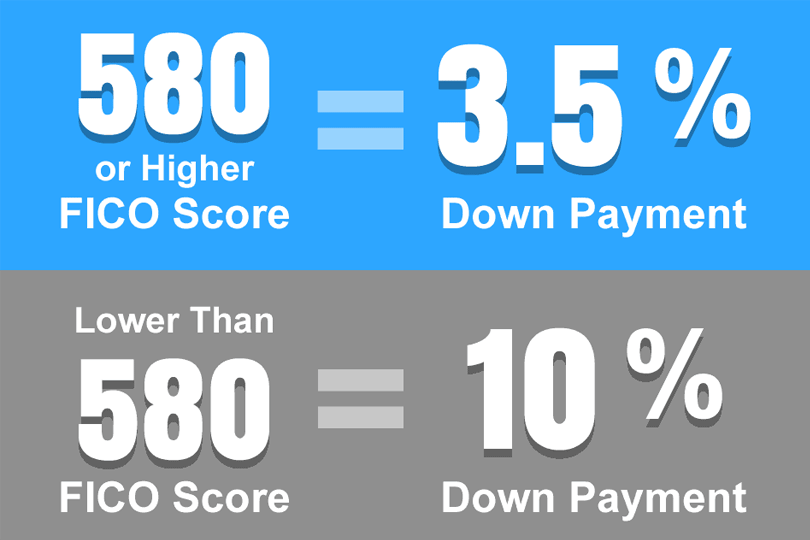Getting To Yes With an FHA Mortgage
April 22, 2025
How can I improve my debt-to-income ratios before applying for an FHA loan?
A lower debt ratio means the lender has an easier time approving your loan application. Working on your debt-to-income (DTI) ratios involves increasing or decreasing your income.
To increase your income, consider your opportunities for a raise at your current job. You could also look for a higher-paying position. A part-time job could supplement your income if you have additional skills or time.
Ensure that any new income sources are stable and can be documented.
Focus on paying down high-interest debts. Create a budget. It can help you cut expenses. Do not take new debt before or during the mortgage application process.
What other factors might lenders consider during the FHA loan approval process?
While credit score, income, employment history, and the property are primary considerations, lenders may also evaluate other factors during the FHA loan approval process.
- If down payment funds are coming from a third party, be prepared to provide documentation such as bank statements, gift letters, etc.
- Having savings or investment accounts can demonstrate financial stability. It is not a requirement for loan approval, but it helps.
- Lenders review financial stability, including your spending habits and ability to manage your finances responsibly.
- It is crucial to be honest and transparent throughout the loan application process.
- Providing false or misleading information typically leads to denying your loan application. Falsifying loan forms can have legal implications.
To maintain a smooth loan application process and avoid potential pitfalls, there are several things you should refrain from doing. For starters, don't open new credit accounts.
Avoid large purchases on existing credit cards or taking out new loans during the loan application process.
Be mindful of your employment needs for loan approval. If a job change is unavoidable, inform your lender immediately, as it may require additional documentation and potentially affect your loan approval.
Do not change from salary to contract, to freelance, or to commission while your loan application is in progress. Wait til after closing day.
Changes in your bank account balances can raise red flags for lenders. Be prepared to document the source of any large deposits. Do not co-sign or co-borrow with others until you have closed your home loan.
How can pre-approval help improve my chances of getting an FHA loan?
Obtaining pre-approval for an FHA loan can improve your chances of buying a home. Pre-approval involves a lender reviewing your financial information, including your credit history, income, and assets, to determine the maximum loan amount you could be approved for.
Are there any specific requirements for property purchased with an FHA loan?
Yes, properties financed with FHA loans must meet specific minimum property standards to ensure they are safe, sound, and secure. These standards protect both the borrower and the FHA's investment.
A licensed FHA appraiser will conduct an appraisal to find conditions that could affect the property's safety, structural integrity, or habitability. This includes leaky roofs, faulty plumbing or electrical systems, pest infestations, and structural problems.
If the appraisal identifies any required repairs, these must be completed before the FHA approves the loan. It is wise to conduct a thorough home inspection in addition to the FHA appraisal to identify any potential issues the appraiser might not specifically address. Addressing any known property issues before making an offer can streamline the loan process.
What is mortgage insurance, and how does it affect an FHA loan?
There are two types. FHA Upfront Mortgage Insurance Premiums or UFMIPs, are a one-time fee paid at closing or can be rolled into the loan amount.
The FHA Annual Mortgage Insurance Premium, or MIP, is an ongoing monthly premium as part of your mortgage payment. The amount of your annual MIP will depend on factors including the loan amount, loan term, and loan-to-value ratio. For many FHA loans originated today, the annual MIP is required for the life of the loan.

FHA Loan Articles
March 11, 2025Adding a co-borrower to your FHA is a way to offset fears that you won't qualify for the mortgage on your own. An FHA loan co-borrower with a more substantial financial profile may offset the primary borrower's weaknesses, demonstrating a reduced risk to the lender. But for an FHA loan, don't assume that one borrower with good credit scores can offset one with non-qualifying scores. We ask 20 questions about co-borrowing to help you better plan for your FHA loan.
March 10, 2025Even if you aren’t considering your home loan options right this second, it’s smart to know your options if you decide to pursue a new home later. To that end, using a mortgage calculator is a smart choice for setting some basic budgeting parameters as you plan your path toward home ownership. A mortgage calculator helps you plan for future financial scenarios, such as buying new or refinancing a current home.
February 27, 2025 Buying your first home can feel overwhelming, especially when you start hearing terms like "subprime mortgages" and "FHA loans." Understanding these options is crucial for making the right decision. Subprime mortgages are designed for borrowers with less-than-perfect credit histories. This might include past issues like late payments, loan defaults, or even bankruptcy...
February 26, 2025Buying your first home can be exciting, but the mortgage process often throws a curveball of unfamiliar terms. Here are answers to common questions first-time homebuyers have about mortgage jargon and terms.
February 18, 2025Mortgages typically require mortgage insurance and homeowners insurance. They are both key parts of your home loan but they serve very different functions. Do you know the differences between the two? Find out how ready you are to begin the process of buying your new house.







